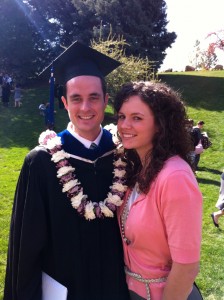Textual Analysis of Inventing the Unversity by David Bartholomae
Your standard success seeking college student walks into class on the first day. He scans the environment of his new fellow classmates and realizes his competition. New scribbles of dry erase marker dance on the white board as he critiques every move that his new professor is making. In order for this student to pass this class, he has to play this professor’s game. He has to invent the university. Chemistry is a new concept to this college student, but he acts like he’s been doing it since second grade. Whenever an assignment is made, he takes on the characteristics of a scientist with a PhD. The writing style he chooses persuades his audience of fellow scientists that he is knowledgeable and credible.
A college student switches from a scientist to a fitness expert to an English professor all within a matter of a few hours. Professors expect it, and the student plays their game. According to David Bartholomae, “He must dare to speak it or to carry off the bluff, since speaking and writing will most certainly be required long before the skill is ‘learned.’â€? Bartholomae suggests that a student must invent himself into the subject that he is currently studying.
Professors love it when a student invents their specific university discipline, because they want their students to become what they are. The professor finds delight when his students act and sound like their profession. The students are rewarded for carrying out the bluff and continue their path to the ‘A’. Playing the professor’s game is what college students are best at.
A common problem is that the student often slips out of stance or character and becomes less than they claim. Bartholomae outlines specific occasions when basic writers, college students, slip out of character and are caught red handed. On one instance the setting is wrong and on another instance the writer fails to conclude what he introduces.
Let us imagine this college chemistry student beginning his first chemistry paper. His first step is to analyze his audience. According to Bartholomae, it is a catch 22 because it is impossible for him to accurately analyze his audience. How can he know exactly what the reader knows or their life experience? All they can do is guess and assume what his reader knows. He thinks to himself, “Am I more powerful than my audience, or equal to them?� Decisions like this need to be made while planning in order for this paper to be successful.
On the other hand, some college students do not fit into this category of ‘jumping through the hoops’ to get an ‘A’. They feel they do not need to be something they are not. They argue to ‘accept reality’ and ‘stop trying to be something they are not.’ What if the college student’s priority isn’t playing the teacher’s game? This college student doesn’t care what grade they get. Learning the content of the subject is what intrigues them and motivates them. This type of college student is definitely the easiest route to take. It doesn’t require you to fake who you are. By simply writing, you display who you are and what you know. Simple as this seems, the downfall that is created is the lack of challenge and improvement.
Bartholomae seems to land himself right in the middle of both these types of college students. He argues that, “There is, to be sure, an important distinction to be made between learning history, say, and learning to write as an historian.â€? The difference is expanding the student’s mind beyond himself and challenging himself to think like the historian. Bartholomae suggested, “I expect my students to be, themselves, invented as literary critics by approximating the language of a literary critic.â€?
Using a personal history while writing is important in certain areas. Using the term ‘I’ is what can make or break the paper. Authority is instantly criticized by the reader when an opinion is stated instead of assumed fact. Bartholomae suggests that if the author, themselves are already credible, the opinion’s force is very great. Whereas if the author has no authority, the opinion has the weight of a feather.
Personally, I have used this technique of inventing myself into a professional of subjects that I study. It is similar to the conceptual idea of “Act as if, and then you will become.� When I study public speaking, I am the best public speaker there is. When I study object oriented programming, I know exactly how to write code. At work I become a technical scope document expert.
Should a college student invent themselves into what their professor wants? Or should the college student just be themselves? Balance needs to be created between these two types of students. When that balance is mastered, the student does more than invent themselves and is more than who they are. The student becomes the professional of that discipline. Do more than invent yourself and become.
 Three years ago I wondered when April 2011 was going to come. This weekend I put on my cap, gown, and hood and joined 6000+ others at BYU’s 2011 commencement ceremony. I received my Bachelor of Science in Information Systems and Master of Information Systems Management degrees at the same time. Here’s a recap on my college career and why I chose this major.
Three years ago I wondered when April 2011 was going to come. This weekend I put on my cap, gown, and hood and joined 6000+ others at BYU’s 2011 commencement ceremony. I received my Bachelor of Science in Information Systems and Master of Information Systems Management degrees at the same time. Here’s a recap on my college career and why I chose this major.